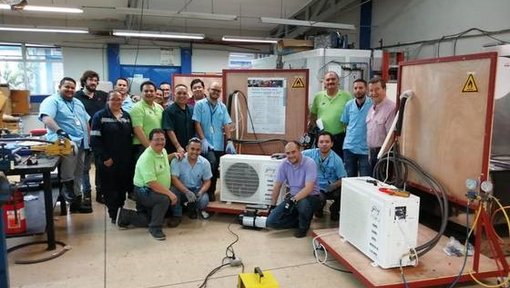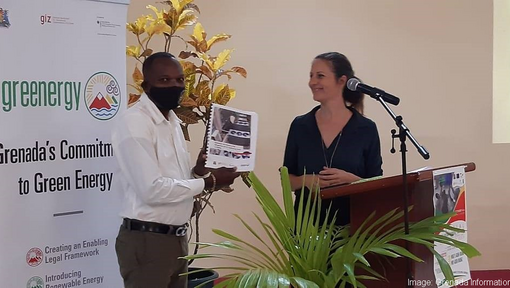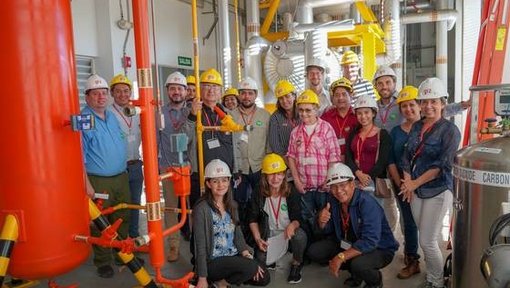The SPODS project supported seven countries in Latin America and the Caribbean in their shift to Green Cooling. Today, after almost 4 years of successful cooperation, we draw a conclusion.
The ambition of the SPODS project was to support Cuba, Colombia, Costa Rica, Grenada, Mexico, Paraguay and Venezuela on their path to Green Cooling. SPODS started in 2017 and was co-funded by the European Union and the German Federal Ministry for Economic Cooperation and Development (BMZ). “The goal was to assist the countries in two matters”, says Mónica Silva Gonzalez, project manager at GIZ, Germany, “on the one hand, in fulfilling their obligations under the Montreal Protocol related to the ODS phase-out and on the other hand, in their current HFC mitigation in anticipation of the Kigali obligations.” GIZ implemented the project together with UNDP and UNIDO in close cooperation with the National Ozone Units of the respective countries.
From food to flowers - everything needs refrigeration
“For us it was important to meet each country on its individual level taking into account their national situation, needs and challenges”, says Mónica Silva Gonzalez. Working closely with the local industry and users of cooling technologies was a crucial component. Therefore, the partner countries cooperated with various sectors like supermarkets, flower farmers, the dairy products industry and hotels as well the RAC service sector. This resulted in various enriching outputs. The partners developed sound technical and economic assessments for the introduction of Green Cooling technologies in their country. Some followed innovative approaches and created guidelines to formulate initiatives using carbon credits. Others evaluated the energy consumption of propane-based air conditioning systems or explored the feasibility of national low-GWP refrigerant production, such as hydrocarbons of refrigerant grade.
The SPODS project also offered support in terms of ODS treatment. Thus, ODS inventories were developed, the current national situation as well as regulatory framework were assessed, and end-of-life treatment strategies were designed. “All these measures constitute the base for a sound and integrated management of ODS banks” says Mónica.
SPODS pictures
New skills for RAC technicians
A sustainable switch to Green Cooling technologies is only possible with the corresponding know-how. RAC technicians who know how to handle natural refrigerants safely play a major role in this regard. In specific trainings such as the Cool Training, they learned about the characteristics and safety aspects of natural refrigerants as well as about servicing the respective equipment.
Sharing of experience and know-how
Another important aspect is networking with stakeholders who are following the same path. Therefore, several “Technology Roadshows” were organised including company visits in Germany and Costa Rica as well as videos and online events showcasing applications based on natural refrigerants and promoting the sharing of experience. The virtual Technology Roadshow 2021 brought up a video series from several RAC companies and institutions across Latin America, the Caribbean and Europe. They are available online (opens in a new window). “We are happy that despite these challenging times, we were able to unite countries worldwide and could learn from each other”, says Mónica, “With all these components, SPODS contributed significantly to the preparation of the partner countries to introduce Green Cooling technologies.”
GIZ Proklima would like to thank the National Ozone Units of the SPODS partner countries, UNDP and UNIDO, BMZ and the European Union for this fruitful cooperation.




